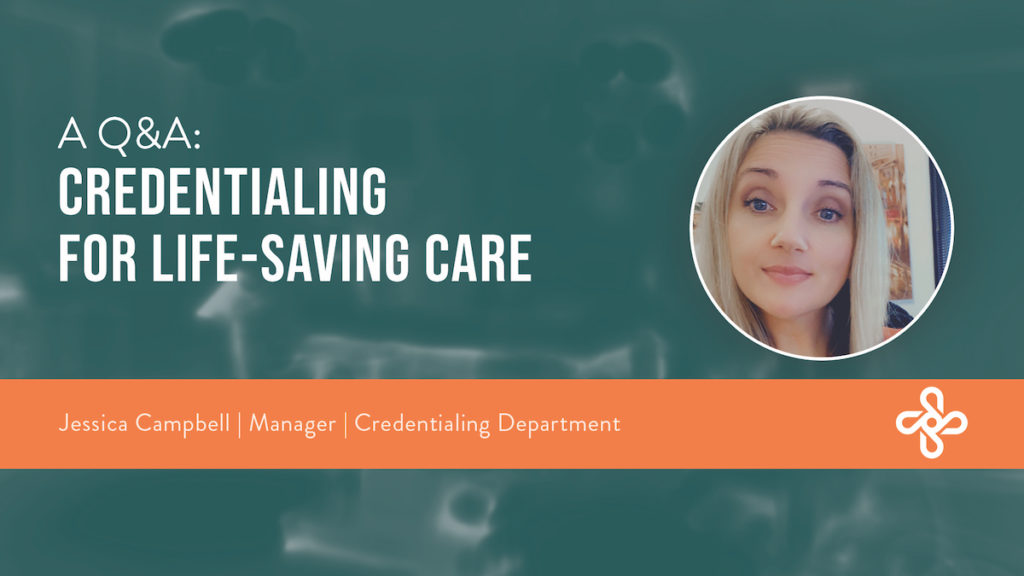
Illegal referrals and inaccurate billing are often inadvertent, but can be part of deliberate and deceptive moneymaking schemes when physicians and other clinicians have ownership in outsourced providers for hospitals. Whether intentional or not, there is an ongoing pattern of regulatory compliance violations relating to the False Claims Act, the Stark Law, and the Anti-Kickback Statute. Headlines continue to regularly highlight fraudulent billing and illegal referrals that pose tremendous risk to hospitals, providers, and patients. Even alleged violations and pre-trial indictments can be costly given that regulatory agencies are authorized to suspend federal payments to providers under investigation.

In the original Star Wars movie, we cheered as the Rebel Alliance strike teams zipped through the trenches of the Death Star to hit a tiny target and win a great victory. (Yes, today is Star Wars Day – May the Fourth be with you!) Laparoscopic surgeons use similar tactics as they navigate narrow openings in tightly focused procedures to help patients achieve big improvements. As demand for such services continues to increase and your hospital grows its laparoscopic services, you’ll need a minimally invasive surgical support (MISS) program you can rely on. Our latest guide, The True Value of a Minimally Invasive Partner in Your OR, will help you navigate the process of providing a strong, integrated partner for your surgeons and OR teams.

A complex system offers a lot of places to hide bad behavior. Medicare and Medicaid—programs at the heart of the current healthcare debate—are particularly vulnerable to violations of Stark Law, the Anti-Kickback Statute, and the False Claims Act. Nearly every day, the Office of Inspector General (OIG) issues details of individuals and hospitals being charged or convicted of healthcare fraud and abuse. Financial penalties and the possibility of imprisonment aside, damning headlines can destroy the bottom line and reputation of even the most respected providers. Compliance violations drive up healthcare costs and compromise patients who are overcharged or subjected to unnecessary tests and treatments.

The mission of The Joint Commission (TJC) is “to continuously improve health care for the public, in collaboration with other stakeholders, by evaluating health care organizations and inspiring them to excel in providing safe and effective care of the highest quality and value.” It’s a lofty goal, and one that has helped thousands of healthcare organizations improve. Unfortunately, the prospect of a TJC review is stressful and overwhelming for many healthcare providers. It doesn’t have to be. Check out these three things we’ve learned by designing and implementing a tested program that ensures that the people of our organization are always prepared to pass a stringent TJC evaluation while also meeting the requirements of our own internal quality programs.

From a healthcare perspective, the only thing we can be certain of in 2017 is that there will be uncertainty. For healthcare administrators, there is uncertainty around how to manage changes in provisions of the Affordable Care Act, Bundled Payments for Care Improvement (BPCI), and the Medicare Access and CHIP Reauthorization Act (MACRA). Restructuring Medicare and Medicaid could have a significant impact on planning, implementation, and payments for providers. But, regardless of the new format, healthcare providers like SpecialtyCare will always have an obligation—both to their patients and their customers—to improve value by providing high-quality care while containing costs.

It’s been said that “Everyone has a special talent, some are just flashier than others.” And so it is in healthcare. Behind every high-visibility physician and hands-on surgical team, there is a large group of people in back offices providing invaluable support. Everyone plays an important role—from human resources and training to accounting and scheduling. But today, as part of National Medical Staff Services Awareness Week, we proudly recognize our credentialing team at SpecialtyCare, and indeed in healthcare settings everywhere, for their contributions to quality patient care and safety.

On October 26, 2016, SpecialtyCare acquired Sentient, a highly regarded intraoperative neuromonitoring provider. We’re thrilled to welcome the people of Sentient to our team. We believe we’ll be a great fit together, both clinically and culturally. Combining our talent and experience will enhance our collective strengths and create new opportunities to advance patient care and drive clinical quality, which reduce costs for our patients and customers.

Estimates vary when calculating the money lost to fraud—it’s difficult to measure that which is undetected—but the Federal Bureau of Investigation (FBI) states that healthcare fraud costs the country tens of billions of dollars each year. Paying for law enforcement, legal resources, and sophisticated technology to combat the problem adds to the price tag. Taxpayers and employers endure the financial brunt of fraud, but illegal schemes can also put patient health at risk. Clearly, healthcare fraud is not a victimless crime.

